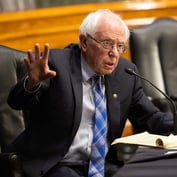What You Need to Know
- A 65-year-old couple this year can expect to spend an average of $315,000 in health care and medical expenses in retirement,
- Yet nearly 70% of Americans think associated medical costs will be under $25,000.
- Nearly 60% of baby boomers incorrectly thought people could enroll in Medicare at age 62.
A 65-year-old couple this year can expect to spend an average of $315,000 on health care and medical expenses throughout their retirement, according to Fidelity Investments, which has $10.5 trillion in assets under administration, in its annual Retiree Health Care Cost Estimate report.
This is up 5% from last year’s findings, and $274,000 more than what most Americans believe they can expect to spend on medical care in retirement.
For single retirees, the amount is $150,000 for men and $165,000 for women.
This estimate is based on the assumption that the retirees are enrolled in traditional Medicare, which covers many medical expenses, and Medicare Part D, which covers prescription drugs.
The survey was conducted Feb. 28 to March 4 among 1,000 adults 18 and older.
Carson Group retirement expert Jamie Hopkins noted in a tweet: “New @Fidelity study shows average 65 year old couple will need $315,000 in todays dollars to cover their medical retirement expenses.
“It’s a lot, but the real risk tends to be out on the tail in that top 10% range where the costs can be completely disruptive to any lifestyle.”









 May 16, 2022 at 02:50 PM
May 16, 2022 at 02:50 PM











